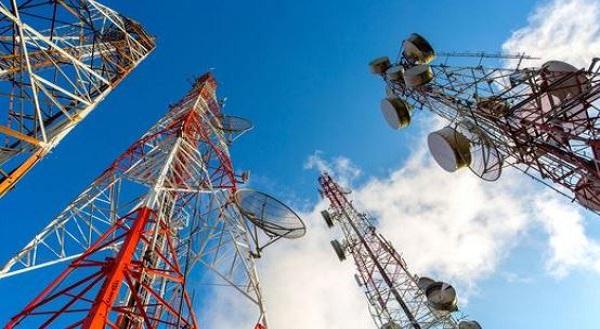Barely 48 hours after Multichoice alerted subscribers to a three-day technical downtime, telecommunication companies have expressed concern over possible connectivity disruptions as construction advances on the 700km Lagos-Calabar Coastal Highway.
While the DStv and GOtv owner acknowledged the anticipated impact of the ongoing Lagos-Calabar construction project on their uplink facilities, telcos on Sunday expressed broader concerns emphasising the vital role of telecommunication service and the effect of possible anticipated technical disruption.
The Lagos-Calabar coastal highway corridor serves as a crucial landing point for multiple submarine cables connecting Nigeria to Europe
The cables, including the West Africa Cable System (WACS), MainOne, Glo1, ACE, and NCSCS, are vital for international communications and data transmission in the country.
The Federal Executive Council approved Phase One of the ambitious 700-km Lagos-Calabar coastal highway project in February, entrusting the task to Hitech Construction Company Limited.
The highway project was designed to connect Lagos to Cross River, passing through the coastal states of Ogun, Ondo, Delta, Edo Bayelsa, Rivers, and Akwa Ibom, before culminating in Cross River.
Meanwhile, the demolition of numerous properties and recreational centres in Lagos has been carried out to expedite the construction of the highway.
In light of the developments, telcos stressed the necessity of stakeholder consultations with the Ministry of Works to address potential risks and implement robust mitigation measures.
While dialogue with the Federal Government is yet to happen, telcos have warned Hitech Construction to exercise caution to prevent damage to critical national infrastructure.
Speaking with The PUNCH on Sunday, the Chairman of the Association of Licensed Telecom Operators of Nigeria (ALTON), Gbenga Adebayo, confirmed that the Ministry of Works had yet to engage the telcos on environmental impact assessment.
The ALTON chairman said the Ministry of Works, headed by David Umahi, had engaged some stakeholders but excluded the telecom operators.
“The Ministry of Works has not approached us, and I’m unsure if environmental impact assessments have been conducted. The route is crucial for the landing of numerous submarine cables, so caution is essential.
“Some members have reached out to them, urging caution. As the chairman of the industry, I can affirm that ALTON members were not consulted regarding the assessment of the undersea cable within that right of way,” he explained.
Adebayo revealed that some of its members had written to the works ministry on the matter over the need for a dialogue. He however said the body had yet to get any response.
He added that the Nigerian Communications Commission had been engaged to facilitate talks with the ministry.
“We’ve informed the Nigeria Communications Commission about this issue, and they are attempting to contact the Ministry of Works. However, I can confirm that neither we nor any of our members were contacted. This is on record. We were not included in the stakeholder consultations, and we’re concerned about the actions being taken.”
According to Adebayo, the Lagos-Calabar coastal highway corridor facilitates international traffic into the country, with so much risk involved if caution is not applied by the construction firm.
“There’s a significant risk involved, and I advise carefulness. Any destruction could lead to total disruption and severe economic consequences. Caution must be exercised to avoid damaging this critical economic infrastructure.”
In March, service disruption caused by cuts to the undersea cable supplying broadband Internet connectivity to Nigeria and countries in the West African sub-region forced many banks and other financial institutions, as well as telecom companies and allied firms, to scale down their operations.
Experts said the recent subsea cable cut, which disrupted connectivity in West Africa on March 14, 2024, could result in collective repair costs of about $8m for the four digital infrastructure companies affected.
The Chief Executive Officer of West Indian Ocean Cable Company, Chris Wood, said the four digital infrastructure companies affected could spend as much as $8m each to repair a single cable.
The affected cables include MainOne Cable, the West African Cable System, the African Coast to Europe submarine cable, and the SAT3 subsea cable systems.
Wood highlighted that each affected cable firm might need to allocate between $1m and $2m for the complete restoration of a single subsea cable, depending on the severity of the damage incurred.
The WIOCC CEO stated, “It is not a few $100,000. It is several millions of dollars, maybe $1m to $2m per cable, depending on how long it takes the ship to find the cable and repair it.
“Maybe slightly more than that. And those costs are borne by the cable owners themselves. It is a cost that we will factor into our businesses because these things do happen.
“I can’t say exact figures because it depends on the nature of the cuts and how long it takes to repair them, but when you look at the four systems together, it is several $1m.”
According to Wood, it will cost Africa $1bn to lay new cable that will connect from Europe, connecting multiple African countries, including Nigeria.
He noted that it would take at least 10 years to design the project and finish building, noting that the cost would be huge.
“So, it is not a simple thing to say, right? Let’s lay more cables because ultimately somebody has to pay that billion dollars, and eventually it is the end user. So, there has to be a commercial justification for spending that kind of money.
According to the President of the Association of Telecommunications Companies of Nigeria, Tony Emoekpere, the ongoing construction work is yet to get close to the areas where the undersea cables and fibre cables are located.
However, he said it was crucial to recognise that all submarine cables to Lagos are situated along that coastal line.
END.

